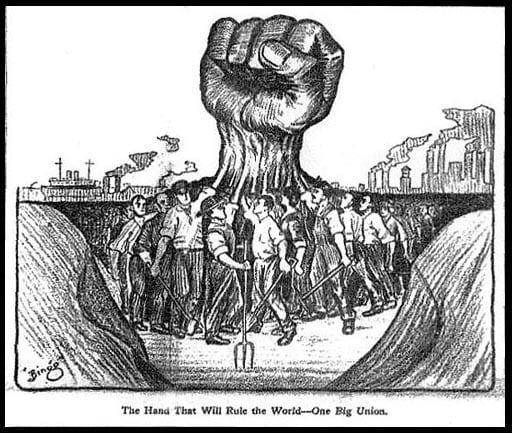Teleperformance Secret Santa: Did you go on strike? Here’s a layoff for you!
Salary stuck at the same level for a decade? – Check. Fixed term contracts that may even be limited to 1 month? – Check. Workplace bullying with stifling productivity checks? – Check. Special purpose stay permit? – Check. Misinformation about the right to strike? – Check. Wonder if this is some kind of labor hellhole? Of course not, it’s just a Great Place To Work! (a special certification for Greek companies assessing the “work experience” they offer)
Teleperformance is a company that employs over 13,000 people nationwide and had a financial turnover of €453 million and a profit of €61 million in 2023. This ranks it among the largest employers in Greece, where the state is trying to bring the much desired growth by creating a fertile ground for intensive labour exploitation and increased legal accommodations for large capitalist groups like Teleperformance, trampling on workers’ rights that have been fought over so far through our struggles. But what does all this mean for Teleperformance workers and for labour in general in “growth” Greece?
At a time when working hours are increasing and wages are not nearly enough to cover our needs, Teleperformance is steadily increasing its profits every year. While bragging about a “modern and inclusive work environment”, the company has stubbornly refused to make any wage increases for over a decade, invoking legislative accomodations that allow it to maintain an expendable workforce with very few rights, and has recorded a large number of complaints against it for injustices, bullying, and violative incidents. At the same time, intensification of labour is hitting red as, under the pretext of the contracts it has with its clients (giant companies in the digital technology sector), it obsessively insists on achieving unrealistic goals, resulting in the mental and physical collapse of its workers.
Against these working conditions, an important struggle has recently been taking place in Teleperformance. After years of attempts by the management to undermine any kind of struggle, the national labour union of Teleperformance, the SETEP, was created in response. The union has a significant number of members, a large part of whom are immigrants – something quite unprecedented for a union in Greece. Meetings are held entirely in English and the migrant workers played a crucial role in founding the union as some of them already had experience of struggles in Teleperformance in their countries of origin. Migrant workers are subject to a ‘special purpose visa’ scheme which prohibits them from working in another sector and possible non-renewal of their contract can lead to deportation. The union is demanding the signing of a Collective Labour Agreement that includes, among other things, substantial wage increases, permanent contracts and longer breaks. At the same time, through demonstrations at the Ministry of Immigration, the union has managed to secure a commitment from the ministry to revise the terms of the special purpose visa so that renewals of stay permits do not require the presentation of a work contract.
SETEP in its first 11 months counted 10 strike actions and some victories with rehiring of layoffs, with paid leave for the time they had to wait while moving from one project to another and with free transportation to the offices for workers in Chania, Crete. At the same time, especially people working remotely established a common physical space to meet and discuss their problems. However, the union’s constant demand for the signing of a collective agreement is being resisted and mocked by the management, resulting in the escalation of the mobilizations to a 48-hour nationwide strike on 19-20/11.
This escalation brought a series of retaliatory measures on the part of Teleperformance to safeguard its profits and to suppress any claim that could affect the smooth functioning of this well-planned system of recycling flexible and vulnerable workers. Management has proceeded to retaliatory layoffs and non-renewal of contracts of union members and workers who participated in the strike actions. At the same time, it is trying various tactics to divide the workforce into local and migrant workers, to lure people from departments with the highest participation in the mobilisations with meagre bonuses and to deter participation in the strikes by trying to convince people that they will not achieve anything that way.
The example of Teleperformance and the workers’ struggle has a wider relevance for class antagonism. Teleperformance is a company that is methodically implementing digital restructuring at work by utilising the latest technologies of artificial intelligence and remote work. At the same time, it has established a complex system of labour exploitation and precariousness by recycling workforce from HR companies with short-term contracts of duration limited to even one month.
Supporting the struggle of the Teleperformance workers contributes to a broader resistance to modern work hellholes, to the individualism that is brought about by defeatism, to the insecurity and fear of survival, of how to make a living covering your basic (and non-basic) needs. The widening of the struggle at the sectoral level has already scared the telecommunications bosses who are making “black lists” of workers involved in the mobilisations!
We are not afraid of the layoffs – the bosses should be afraid of wildcat strikes!
Solidarity with the strike rallies on Monday 23/12 8am and 7pm at the Teleperformance offices (Gravias 25, Piraeus)!
re/traverse – exiting the hellholes of precarity
#strike #unionism #labormvt #Greece #Teleperformance
https://retraverse.espivblogs.net/635-2/



